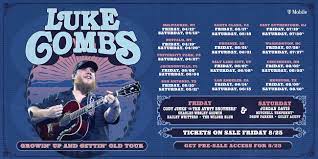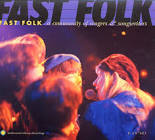Musicians: The Soul Weavers of Melody and Emotion
Music has the remarkable ability to touch our souls, evoke emotions, and transport us to different realms. And behind this enchanting power lies a group of extraordinary individuals known as musicians. These artists dedicate their lives to the creation and performance of music, weaving melodies that resonate with our hearts and minds.
Musicians are the storytellers who communicate through sound. They possess a unique talent for translating their thoughts, feelings, and experiences into harmonies that transcend language barriers. Whether they are composers, instrumentalists, or vocalists, musicians have the magical ability to capture the essence of human existence in their art.
One of the most fascinating aspects of musicianship is the sheer diversity within this realm. From classical maestros to jazz virtuosos, from rock legends to hip-hop pioneers, each genre brings forth its own set of skills and techniques. Musicians spend countless hours honing their craft, mastering their instruments or refining their vocal abilities. They study theory, practice tirelessly, and push themselves beyond limits to achieve mastery.
But musicians are more than just skilled technicians; they are also vessels of emotion. They possess an innate ability to tap into the deepest recesses of their being and channel those emotions into every note they play or sing. It is this emotional connection that allows them to create music that resonates with listeners on a profound level.
Moreover, musicians are not solitary beings; they thrive in collaboration. Bands come together like puzzle pieces fitting perfectly into a musical mosaic. Orchestras blend individual voices into a symphony of sound. Musicians feed off one another’s energy, bouncing ideas back and forth until they create something greater than themselves—a collective expression that transcends individuality.
The life of a musician is not without challenges. It demands unwavering dedication, perseverance through setbacks, and sacrifices along the way. Many musicians face financial uncertainties or struggle to find their place in an industry that can be fiercely competitive. Yet, their passion for music and the joy it brings to their lives is what keeps them going.
In addition to their artistic contributions, musicians also play a vital role in society. They have the power to inspire change, raise awareness about social issues, and bring people together through shared experiences. Music has the ability to heal, uplift spirits, and foster connections across cultures and generations.
So next time you listen to a captivating melody or attend a live performance that leaves you spellbound, take a moment to appreciate the musicians behind it. Recognize the countless hours of practice, the emotional vulnerability they pour into their art, and the sheer talent that allows them to create something truly extraordinary.
Musicians are the soul weavers of melody and emotion. They enrich our lives with their gift of music, reminding us of our shared humanity and touching our hearts in ways words cannot express. Let us celebrate these remarkable individuals who dedicate themselves to creating a soundtrack for our lives.
7 Frequently Asked Questions About Musicians: Popular Artists, Music Genres, Success Stories, Finding Music, Instruments Played, Learning Their Style, and Upcoming Shows
- Who are the most popular musicians?
- What type of music do they play?
- How did they become successful?
- Where can I find their music?
- What instruments do they play?
- How can I learn to play like them?
- Are there any upcoming shows or tours for them?
Who are the most popular musicians?
The world of music is vast and ever-evolving, making it challenging to pinpoint the most popular musicians definitively. However, there are several artists who have achieved significant fame and recognition across various genres. Here are a few examples:
- Beyoncé: With a career spanning over two decades, Beyoncé has become an iconic figure in the music industry. Known for her powerful vocals, dynamic performances, and empowering lyrics, she has amassed a massive global following.
- Taylor Swift: As one of the best-selling artists of all time, Taylor Swift’s blend of country and pop music has garnered her widespread acclaim. Her introspective songwriting and relatable themes have resonated with millions around the world.
- Ed Sheeran: Renowned for his heartfelt ballads and catchy melodies, Ed Sheeran has gained immense popularity with his soulful voice and acoustic guitar skills. His ability to connect with audiences through his honest storytelling sets him apart.
- Drake: A dominant force in the hip-hop and R&B scene, Drake has achieved remarkable success with his unique blend of introspective lyrics and infectious beats. His chart-topping hits consistently captivate listeners globally.
- Adele: Known for her soulful voice and emotionally-charged ballads, Adele’s powerful vocal range has earned her critical acclaim and a dedicated fanbase worldwide.
- BTS: This South Korean boy band has taken the world by storm with their catchy pop tunes, energetic performances, and dedicated fanbase known as the “ARMY.” They have broken numerous records and have become a global phenomenon.
It is important to note that popularity can vary across different regions and may change over time as new artists emerge onto the scene or trends shift within the industry. Music is subjective, so what resonates with one person may differ from another’s preferences.
What type of music do they play?
Musicians encompass a wide range of genres, styles, and musical expressions. The type of music they play depends on their individual interests, training, and artistic preferences. Here are some examples of the diverse musical genres that musicians may explore:
- Classical: Musicians in this genre perform compositions from various periods, including Baroque, Classical, Romantic, and Contemporary classical music. They often work with orchestras or perform as soloists.
- Jazz: Jazz musicians specialize in improvisation and swing rhythms. They may play instruments such as saxophone, trumpet, piano, or drums and perform in small ensembles or big bands.
- Rock: Rock musicians create energetic and dynamic sounds using electric guitars, bass guitars, drums, and vocals. They can be part of bands or solo artists.
- Pop: Pop musicians focus on creating catchy melodies and lyrics that appeal to a broad audience. Their music often incorporates elements from various genres such as rock, electronic music, R&B, and hip-hop.
- Folk: Folk musicians draw inspiration from traditional music styles passed down through generations. They use acoustic instruments like guitars, banjos, fiddles, and mandolins to create heartfelt and storytelling songs.
- Hip-Hop/Rap: Hip-hop musicians combine spoken word poetry with beats and electronic sounds to create rhythmic tracks that address social issues or personal experiences.
- Electronic: Electronic musicians produce music using synthesizers, drum machines, samplers, and digital tools to create futuristic soundscapes ranging from ambient to dance-oriented tracks.
- Country: Country musicians often incorporate elements of folk music with a distinct American sound characterized by acoustic guitars, fiddles, banjos, pedal steel guitars, and heartfelt storytelling lyrics.
- World Music: Musicians in this genre explore traditional music from various cultures around the world while incorporating modern elements to create a fusion of sounds that celebrate global diversity.
- Experimental/Avant-garde: Experimental musicians push the boundaries of traditional music, exploring unconventional sounds, structures, and techniques to create innovative and thought-provoking compositions.
These are just a few examples of the many genres and styles that musicians may explore. Musicians often have diverse musical backgrounds and interests, allowing them to cross genres or create unique blends of different styles. The beauty of music lies in its ability to evolve and adapt, giving musicians endless opportunities for creative expression.
How did they become successful?
The path to success for musicians is as diverse as the artists themselves. While there is no one-size-fits-all formula, several factors often contribute to their journey towards success. Here are some common elements that can play a role:
- Talent and Skill: Musicians typically possess a natural talent for music, whether it’s in playing instruments, singing, composing, or producing. However, talent alone is not enough; they must continually refine their skills through practice and education.
- Hard Work and Dedication: Success in the music industry requires immense dedication and perseverance. Musicians spend countless hours practicing their craft, honing their skills, and seeking opportunities to improve.
- Education and Training: Many musicians pursue formal education in music through universities, conservatories, or private lessons. This training provides them with a solid foundation in music theory, technique, and performance practices.
- Networking and Collaboration: Building connections within the music industry is crucial for success. Musicians often collaborate with other artists, join bands or ensembles, or work with producers and industry professionals who can help promote their work.
- Live Performances: Performing live is an essential part of a musician’s journey towards success. It allows them to showcase their talents, build a fan base, gain exposure, and receive feedback from audiences.
- Recording and Distribution: Recording music enables musicians to reach a wider audience beyond live performances. They may create albums or singles that can be distributed digitally or physically through record labels or independent platforms.
- Marketing and Promotion: Successful musicians understand the importance of marketing themselves and their work effectively. They utilize social media platforms, websites, press releases, interviews, collaborations with influencers or brands to increase visibility.
- Resilience and Adaptability: The music industry can be challenging with its ever-changing landscape. Successful musicians adapt to new trends while staying true to their artistic vision. They embrace challenges as opportunities for growth and remain resilient in the face of setbacks.
- Passion and Authenticity: Musicians who genuinely love what they do and stay true to their artistic vision often resonate with audiences. Their passion shines through their music, creating a genuine connection that can lead to success.
- Luck and Timing: While talent and hard work are crucial, luck and timing can also play a role in a musician’s success. Being in the right place at the right time, catching the attention of influential individuals, or having a song go viral can significantly impact their career trajectory.
It’s important to note that success is subjective and can mean different things to different musicians. Some may measure success by commercial achievements, while others prioritize artistic fulfillment or critical acclaim. Ultimately, each musician’s journey is unique, shaped by their individual talents, dedication, opportunities, and the ever-changing dynamics of the music industry.
Where can I find their music?
You can find the music of the Concert Chorale of New York on their official website, concertchoraleofnewyork.com. They may have a dedicated section for recordings or a discography where you can explore and purchase their music.
Additionally, you can check popular online music platforms such as Spotify, Apple Music, Amazon Music, or Google Play Music. Search for “Concert Chorale of New York” or specific albums or tracks to listen to their music digitally.
If you prefer physical copies of their music, you might find CDs or other merchandise available for purchase on their website or at live performances.
Remember to support the artists by purchasing their music through official channels, as it helps sustain their artistic endeavors and allows them to continue creating beautiful melodies for us to enjoy.
What instruments do they play?
Musicians play a wide range of instruments, each contributing its unique timbre and character to the musical landscape. Here are some of the most commonly played instruments by musicians:
- Piano/Keyboard: The piano is a versatile instrument that forms the backbone of many musical compositions. Its wide range and ability to play melody, harmony, and rhythm make it an essential instrument for musicians across various genres.
- Guitar: The guitar is an immensely popular instrument found in numerous music styles, including rock, pop, blues, jazz, and folk. It can be acoustic or electric and is known for its versatility in both accompanying melodies and taking center stage with solos.
- Violin: As one of the oldest instruments in existence, the violin is renowned for its expressive qualities. It is a staple in classical music but also finds its place in genres like folk, country, and even modern pop.
- Flute: The flute is a woodwind instrument that produces a delicate and ethereal sound. It is commonly featured in classical music but can also be found in jazz, world music, and even contemporary genres.
- Saxophone: With its rich tone and expressive capabilities, the saxophone has become synonymous with jazz music. However, it also plays a prominent role in other genres like funk, soul, rock, and pop.
- Drums/Percussion: Drummers provide the rhythmic foundation for any musical ensemble. They play various drums such as bass drums, snare drums, cymbals, and percussion instruments like tambourines or shakers to create intricate rhythms across different styles of music.
- Bass Guitar: Often overlooked but crucial to any band’s foundation is the bass guitar. It provides the low-end groove and anchors the harmonic structure of songs across genres like rock, funk, jazz, and reggae.
- Voice/Singing: Vocalists use their voice as their primary instrument, conveying emotions and delivering lyrics. Singers can specialize in various styles such as classical, opera, pop, rock, R&B, or country.
- Trumpet: The trumpet is a brass instrument known for its bright and powerful sound. It plays a significant role in classical orchestras and jazz ensembles but can also be heard in various other genres.
- Electric Keyboards/Synthesizers: Electric keyboards and synthesizers produce a wide array of sounds and textures. They are prevalent in electronic music genres but also play a role in many other styles, adding layers of atmospheric or experimental elements.
These are just a few examples of the vast array of instruments musicians play. From strings to winds, percussion to vocals, each instrument contributes to the rich tapestry of music created by these talented individuals.
How can I learn to play like them?
Learning to play like accomplished musicians requires dedication, practice, and a love for music. Here are some steps you can take to embark on your musical journey:
- Choose an instrument: Select an instrument that resonates with you. Whether it’s a guitar, piano, violin, or drums, find an instrument that captures your interest and sparks your passion.
- Seek formal instruction: Enroll in lessons with a qualified teacher who can guide you through the fundamentals of playing your chosen instrument. A good teacher will provide structured lessons tailored to your skill level and goals.
- Practice regularly: Consistent practice is crucial for improvement. Set aside dedicated time each day to practice scales, techniques, and exercises provided by your teacher. Gradually increase the duration and complexity of your practice sessions as you progress.
- Study music theory: Understanding the basics of music theory will greatly enhance your playing abilities. Learn about notes, chords, scales, rhythm, and other fundamental elements that form the foundation of music.
- Listen actively: Immerse yourself in the music of accomplished musicians within your preferred genre or style. Actively listen to their performances, paying attention to their phrasing, dynamics, and overall musicality. This will help develop your ear and inspire creativity.
- Play with others: Seek opportunities to play with fellow musicians or join a band or ensemble if possible. Collaborating with others will expose you to different styles and help develop your ability to play in sync with other musicians.
- Explore different genres: Don’t limit yourself to just one genre of music. Experiment with various styles like classical, jazz, rock, or blues. Each genre offers unique techniques and approaches that can broaden your musical horizons.
- Embrace improvisation: Improvisation allows you to express yourself freely through music. Practice improvising over chord progressions or melodies as it helps develop creativity and spontaneity in your playing.
- Record and analyze your playing: Use technology to record your practice sessions or performances. Listen back to identify areas for improvement and track your progress over time.
- Stay motivated and have fun: Remember that learning an instrument is a journey, and progress takes time. Celebrate small victories along the way, stay motivated, and most importantly, enjoy the process of making music.
Learning to play like accomplished musicians requires patience, perseverance, and a genuine love for music. With consistent practice, dedication, and a willingness to learn from others, you can develop your skills and play like the musicians you admire.
Are there any upcoming shows or tours for them?
At this time, there are no upcoming shows or tours scheduled for The Maine. However, they have announced that they will be playing a handful of shows in 2021.




